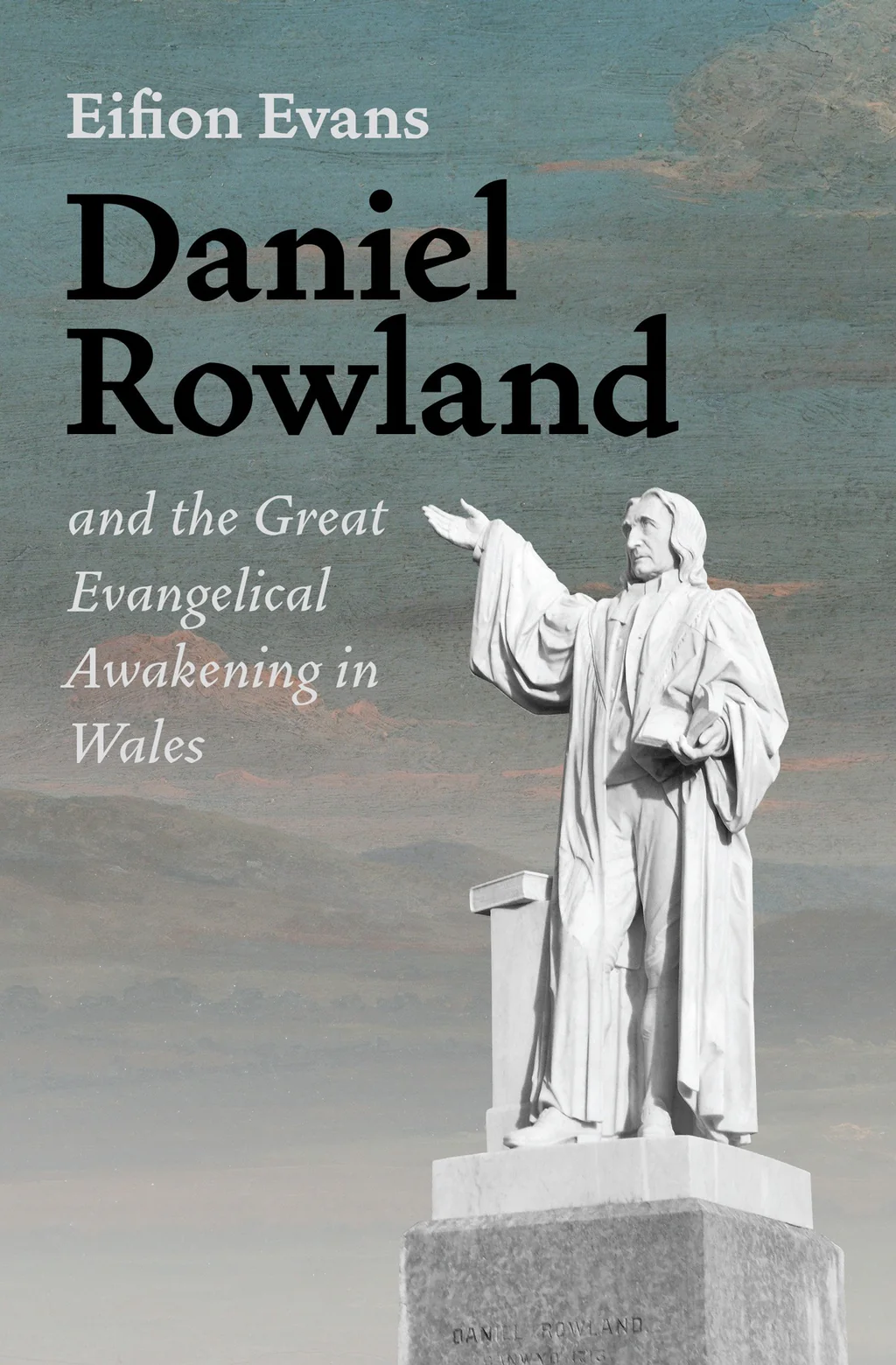
Eifion Evans
Reviewed by: Jonathan Holst
Daniel Rowland and the Great Evangelical Awakening in Wales, by Eifion Evans. Banner of Truth, 2023. Hardcover, 410 pages, $31.50. Reviewed by OP pastor Jonathan Holst.
This book is a narrative history of a Welsh preacher who was used by God.
In the past, British newspapers would print rave reviews about certain preachers, such as Spurgeon, and leaders of American Presbyterianism would read these reports and sail to Britain to witness this praised preaching. (Allegedly, these fathers from the southern states claimed that the same biblical preaching was common in pulpits across the United States, week after week.) Over the years, the Brits have penned similarly euphoric praise for the Welsh Daniel Rowland (see Ryle and “The Doctor”), but Eifion Evans in this biography of Rowland presents a less emotional and more factually detailed assessment of this minister’s life and service.
The latest Banner of Truth reprint is a full and straightforward read. I recommend it to all. I cannot claim to offer a dispassionate assessment. I read of oddly named places and people, recalling that I lived and worked in several of these towns, and I have worshiped in Rowland’s church. Some readers may be similarly passionate, having strong opinions about the phenomenon known as “revival.” Evans does not attempt to confirm or deny such opinions; actually, he makes clear that Rowland took a more circumspect view of such things than Whitfield or Harris.
This detailed biography covers all of Rowland’s life (1713–1790), a part of which was dominated by revival. One learns about many other matters: for example, the struggle of working with brethren of differing convictions when the world is set against you and them, or of the nature and cost of the Christian ministry in a distant time and place. On that point, how many Calvinist ministers have been silenced by the local police; elsewhere arrested and then acquitted at trial; or attacked by a mob on an occasion when a supporter was killed? Rowland even had a gun drawn on him and fired, though the flint did not ignite the powder. Later in his ministry, gunpowder was placed under a makeshift pulpit he was to preach from—but mercifully a friend discovered it. Not allowing such opposition to limit his service, Rowland went on to minister the Supper to thousands outside his church building.
Daniel Rowland was instrumental in forming what became known as the Presbyterian Church of Wales, in his time the Calvinistic Methodist Church. Many readers of this review will know much about Scottish Presbyterians, their persecution, their theologians, and even their arguments. What about Wales? We can learn a few things from this different branch of the Reformed and Presbyterian church.
At 410 pages, this book may not be a simple holiday read, but it is not a tome you will trudge through. Evans’s research is comprehensive. He was a pharmacist and an academic, fluent in English and Welsh. I commend this biography to you for your consideration. Believers should be encouraged to read of the faithful labors of other servants, particularly when the Lord adds a measure of blessing to those efforts. Rowland’s life was just that—sacrificial labor mercifully blessed by our Lord.
January 25, 2026
January 18, 2026
January 11, 2026
Texts that Transform: Church and Ministry
January 04, 2026
December 28, 2025
December 21, 2025
December 14, 2025
© 2026 The Orthodox Presbyterian Church